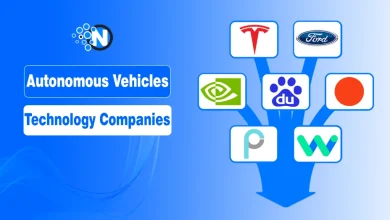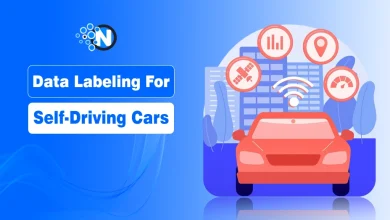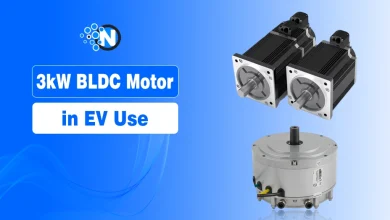Auto Leak Testing Trends In 2025: How EVs Are Changing Industry Detection Standards?

One of the most significant industry transformations in history has recently taken over the automotive world, and that’s the incredible rise of electric vehicles (EVs).
Because EVs are such a revolutionary development, auto manufacturing giants are continuing to rethink just about everything when it comes to essential business practices like production and quality assurance.
One aspect of the car production process that has seen a lot of changes in recent years is auto leak testing, and EVs have now forced manufacturers to evolve traditional leak detection standards today in 2025.
In this blog post, I will be talking more in-depth about the new leak detection systems, materials, and safety considerations that come with the latest EVs!
Let’s begin!
Why Auto Leak Testing Is Increasingly More Important In Today’s EV Era
There’s no denying how auto leak testing has always been a significant part of the auto manufacturing process. It goes a long way to guarantee a new car’s AC system, fuel system, exhaust components, and many other sealed assemblies.
Leaks are simply never good in vehicles of any kind, because they can compromise passenger safety, road performance, and fuel efficiency. However, the stakes are even higher today in 2025, as EVs utilize a wide range of electronic components.

Key EV Components Requiring Leak Testing:
- Battery Packs & Enclosures: For thermal stability and to prevent ingress of water or contaminants
- Liquid Cooling Systems: Vital for battery temperature management
- Power Electronics & Inverters: Must be sealed from humidity and debris
- Charging Systems: Require tight waterproofing to prevent a safety hazard
All of these components rightfully require watertight and/or airtight protection, because even the tiniest of leaks can cause system failures or even dangerous short circuits!
The Latest Auto Leak Testing Trends Making An Impact In 2025
Although many notable shifts are occurring within the auto leak testing sector in 2025, here are some of the key trends that you should know:
1. High-Tech Helium Leak Detection
Helium leak testing was previously used in medical applications and aerospace technology. But the advent of EV manufacturing has now made this form of leak testing more mainstream.
EV producers love how helium leak testing is sensitive enough to detect even microscopic leaks. That’s why this is a preferred method when testing cooling circuits and battery enclosures.
2. Pressure & Vacuum Decay Leak Testing Are Go-To Options For Sealed EV Battery Systems
EV battery systems must be protected from dust, moisture, and all sorts of other contaminants, which is why they require fully sealed enclosures.
Pressure decay and vacuum decay testing have been around for a while. But it’s now being deployed on EV assembly lines to quickly ensure battery system seal integrity.
One thing that’s new with this type of auto leak testing is that automation systems are now improving testing sensitivity thresholds to better accommodate the newest EV components.
3. EV Liquid Cooling System Leak Testing
EVs are very different than traditional combustion vehicles in that they heavily rely on liquid cooling systems. These cooling systems support a vehicle by managing the electric motor, inverter, and battery pack temperatures.
As these liquid cooling systems have continued to become more complex in 2025, EV manufacturers are now investing in comprehensive leak detection systems that can test the pressure levels of multiple components.
4. Smart Sensors & IoT Leak Testers
Leak detection technology is also now being equipped with smart, IoT technology.
This means that auto leak testers and EV manufacturers will get real-time data analytics. It assists them in things like predictive maintenance and process optimization.
Not only does this help manufacturers identify potential quality assurance issues, but it also reduces downtime and maintains consistent auto leak testing standards.
5. Increased Priority On Eco-Friendly Leak Testing
Countless EV manufacturers have made sustainability one of their top business objectives. Which means that auto leak testing is largely no longer using single-use detection materials.
Leak detection technologies like closed-loop helium testing, tracer gas recovery, and dry air leak testing are now being adopted on a broad scale to help EV manufacturing reduce its overall environmental impact.
The Road Ahead For Auto Leak Testing Looks Bright!
There’s no denying how EV technology is only going to continue evolving in the coming years. This subsequently means that auto leak testing technology will continue to develop.
Today, in 2025, EV manufacturers are exploring all sorts of new leak testing protocols. They are doing this for things like next-generation charging systems, hydrogen fuel cells, solid-state batteries, and a lot more.
And these shifts in essential processes like leak detection will ultimately set up the future of travel as the EV industry inevitably leads to more affordable, accessible cars for working-class people throughout the United States and beyond!
Summing Up
As electric vehicles redefine the automobile industry, leak testing has evolved from a quality checkpoint to a vital safety and performance frontier. OEMs and Tier 1 suppliers that embrace these advancements will not only meet compliance demands but will also future-proof their production pipelines for a cleaner, smarter future.




